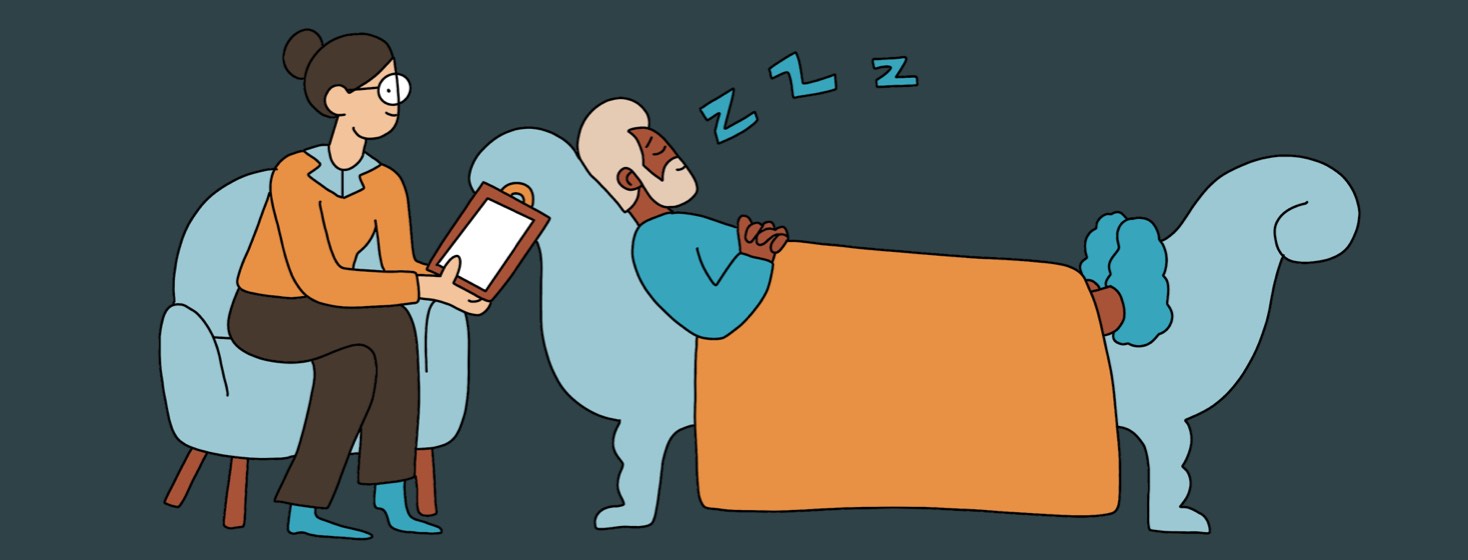Working With a Sleep Psychiatrist for Obstructive Sleep Apnea
When I was diagnosed with severe obstructive sleep apnea (OSA) in 2021, I naively hoped the diagnosis and treatment would solve all of my problems. I have suffered from chronic fatigue for years. Although I reluctantly started my continuous positive airway pressure (CPAP) treatment, I looked forward to living a full life again.
I went through weeks of follow-up appointments, multiple adjustments to my CPAP settings, 2 mask changes, and followed a new sleep routine. However, I was still exhausted day after day. Eventually, my doctor recommended I see a sleep psychiatrist.
How a sleep psychiatrist helps sleep apnea
It has now been about a year since I started treatment with this psychiatrist. It is definitely a unique experience. I mostly expected a doctor who would recommend a host of sleep medications to help me get to sleep. So, safe to say, I entered these appointments with a healthy dose of skepticism.
However, in this case, the opposite is true. My sleep psychiatrist recommended I not use any medications to sleep and instead we worked out a treatment plan together. He diagnosed me with insomnia and delayed sleep-wake phase disorder.
During our first appointment, I had a hard time processing the information. Instead of my treatment being a collaboration, I felt like I was being lectured.
Initial discouragement
I left the first appointment discouraged. There are many of the same challenges I usually face when working with a new doctor: adjusting to their communication style, not feeling listened to, and an immense amount of skepticism at his recommendations. I felt like my concerns were ignored and his recommendations were ridiculous.
After speaking to my therapist, I realized I was feeling intimidated by the sleep psychiatrist and made assumptions about him and the recommendations he made.
I realized I was the problem.
Realizations: my communication
I didn’t feel listened to because I wasn’t communicating. My therapist knows me well, so he was able to point out that I usually shut down when faced with a lot of new information. This is partly because I am afraid to say the wrong thing, but also because of my anxiety and ADHD. This is exactly what I did during the first appointment. I had stayed mostly silent, gone in with assumptions, and dismissed the doctor before even hearing him.
Sure there are doctor’s who gaslight patients and dismiss their concerns. Many of us have experienced someone like this. But what I realized is that communication is a two-way street. The doctor won’t answer my questions if I don’t ask them, and I won’t feel heard if I don’t speak up.
Preparing my questions helped too
At the next appointment with my sleep psychiatrist, I was more prepared. I wrote down my questions beforehand and did a ton of research.
At the start of the appointment, I explained to the doctor that I had some concerns and often needed time to process information before responding. He gladly obliged and allowed me time to ask my questions, which he answered. He also went above and beyond to provide me with his email address so we could communicate between appointments. This is especially helpful for me so I can carefully consider his advice and ask questions when I am ready.
Continued support from my sleep psychiatrist
I am still collaborating with this psychiatrist, and by no means am I cured. I suspect it may take much longer to address the underlying reasons why sleep is so challenging for me and to break my long-standing habits.
Key takeaway: learning from a sleep specialist
But what I have found useful is learning from someone who specializes in sleep. I never knew why sleep was so important. Nor did I realize how much I have been sabotaging myself. I’ve gotten to the root of many things I thought had nothing to do with sleep.
Since that first appointment, the doctor and I have worked on recognizing my fears and anxieties around sleep, finding activities that help me relax before bed, and working on maintaining a consistent sleep routine. It is all extremely challenging for me, however now that I am keeping an open mind and communicating I feel very much supported by this doctor.
This experience has taught me so much about sleep, but also about myself. I generally think I am good at communication and advocating for myself. However, I can always improve. Sometimes we all need to make sure we are keeping an open mind and not stand in our own way.
Have you considered a sleep psychiatrist? Share your story or comment below.

Join the conversation